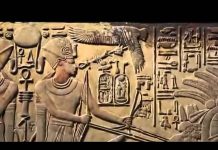“The Origin of Democracy” is a thought-provoking documentary that delves into the contrasting approaches to governance in three ancient civilizations: Roman, Greek, and Persian. Through a meticulous examination of their political systems, the film raises intriguing questions about the origins and interpretations of democracy, challenging our perceptions and shedding light on the complexities of governance throughout history.
The documentary begins by highlighting the trial and execution of Socrates in 392 B.C. in Athens. Socrates, a renowned philosopher, was found guilty by jury for alleged corruption of the youth and other dissent-related charges. As he faced his sentence, Socrates famously proclaimed, “People do not like to have their knowledge questioned, but I know that I know nothing.” This profound statement is presented as a poignant reflection on the early days of democracy and the challenges it faced.
Drawing from Socrates’ criticisms of the Athenian government, the film explores the notion that the democracy practiced in ancient Athens differed significantly from our modern understanding of the term. The filmmakers argue that Athenian democracy was exclusive and aristocratic in nature, with only a fraction of the population—male citizens—having the right to vote and participate in political affairs. The film challenges our perception of democracy, revealing its limitations and shedding light on the unequal distribution of power within Athenian society.
In contrast, the documentary turns its attention to the Persian Empire, a vast dominion that spanned from the Indies to Egypt. Here, rulers governed through a more traditional and straightforward dictatorship methodology. The film highlights the concept of “divine splendor” in Persian rule, where rulers were believed to possess a divine blessing and were seen as the embodiment of the gods’ will. This belief in the rulers’ divine legitimacy fostered a sense of obedience and compliance among the populace.
“The Origin of Democracy” aims to emphasize the subjective nature of interpreting democracy as a form of government. It underscores the complexities and nuances inherent in different systems of governance, suggesting that every form of government has the potential for abuse and shortcomings. By presenting contrasting examples, the documentary prompts viewers to reflect on the historical context and cultural factors that shaped these systems and their subsequent interpretations.
Furthermore, the film invites audiences to question the evolution of democracy and its application in modern society. It highlights the ongoing struggle to expand democratic principles to include marginalized groups and underscores the importance of continuously challenging and refining our understanding of democratic governance.
Through its meticulous research, expert commentary, and thought-provoking analysis, “The Origin of Democracy” offers a compelling exploration of the historical roots and interpretations of democracy. By examining the contrasting political systems of the Roman, Greek, and Persian civilizations, the documentary encourages viewers to critically reflect on the nature of governance, power dynamics, and the ever-evolving concept of democracy.
In conclusion, “The Origin of Democracy” provides a valuable platform for contemplating the origins and complexities of democratic systems. It challenges our preconceived notions, encourages historical introspection, and highlights the ongoing quest for more inclusive and equitable forms of governance. By examining the past, the film invites us to shape a more informed and inclusive future for democratic societies.

































